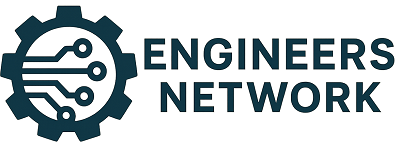Are you tired of managing different business processes and systems separately? Are you looking for a way to streamline your organization’s operations and boost its efficiency? Look no further, because ERP solutions are here to help.
ERP is a software system that integrates various business functions such as finance, human resources, supply chain management, customer relationship management, and others into one central database. This allows for better coordination and communication between departments, resulting in increased efficiency and productivity. The research of Panorama Consulting Solutions shows that ERP systems can boost overall business efficiency by 20-30% in just one year.
In this article, we will delve into the benefits of ERP and provide you with real-life examples of how it has improved businesses’ efficiency.
The Advantages of ERP
There are several advantages to implementing ERP in your organization, including:
Streamlined Processes
One of the main advantages of implementing an ERP system is its ability to streamline processes. By having all departments and functions connected through one integrated system, there is less room for errors, delays, and miscommunication. This leads to faster decision-making and a significant reduction in process time.
Centralized Data Management
ERP systems allow for centralized data management, meaning that all relevant information can be accessed from one central database. This eliminates the need for multiple spreadsheets and systems, which can be time-consuming and prone to errors. With ERP, all data is updated in real time, allowing for better decision-making based on accurate information.
Improved Communication
Effective communication between departments is crucial for any organization’s success. With ERP, departments are able to share information seamlessly, leading to better collaboration and communication. This also reduces the chances of miscommunication and duplicate data entry, making the entire organization more efficient.
Better Financial Management
ERP systems provide real-time financial reporting, which allows for better financial management. This means that businesses can track their finances in real time and make informed decisions based on accurate data. Additionally, with all departments using the same system, there is less room for financial discrepancies, leading to improved financial control and cost savings.
Enhanced Customer Service
With an ERP system, customer information is centralized and easily accessible by all departments. This allows for a more personalized and efficient customer service experience, resulting in increased customer satisfaction and retention.
Examples of Improved Efficiency through ERP
Coca-Cola Enterprises
Coca-Cola Enterprises, one of the world’s largest bottling companies, implemented an ERP system to streamline its processes and improve efficiency. The company previously used different systems for each department, resulting in duplicate data entry and delays in decision-making. With the implementation of ERP, Coca-Cola Enterprises was able to reduce inventory levels by 8% and increase customer satisfaction by 23%.
Amazon
Amazon is a prime example of how ERP has improved efficiency in the e-commerce industry. The company uses an integrated ERP system to manage its vast inventory, supply chain, and customer data. This allows Amazon to process orders quickly and accurately, resulting in shorter delivery times and increased customer satisfaction.
Hershey’s
The chocolate manufacturer Hershey’s faced challenges with managing its complex supply chain and inventory. The company implemented an ERP system to streamline its processes, leading to a 25% increase in efficiency and a $10 million reduction in annual inventory costs.
Whirlpool
Whirlpool, the world’s largest appliance manufacturer, struggled with managing multiple systems for its different brands. This led to duplicate data entry and inefficiencies in production planning and scheduling. With the implementation of an ERP system, Whirlpool was able to reduce production lead times by 30%, improve on-time delivery by 26%, and increase productivity by 10%.
FAQs
What is the cost of implementing an ERP system?
The cost of implementing an ERP system varies depending on the size and complexity of the organization. However, it is important to note that the benefits and cost savings of ERP far outweigh the initial investment.
Does an ERP system require a lot of training?
While there will be some training required for employees to learn how to use the new system, most modern ERP systems have user-friendly interfaces and are designed with ease of use in mind.
Can an ERP system be customized to fit specific business needs?
Yes, most ERP systems can be customized to fit a business’s unique processes and requirements. This allows for a more tailored and efficient system that meets the organization’s specific needs.
Will an ERP system replace the need for human employees?
No, an ERP system is meant to enhance and streamline business operations, not replace human employees. However, it may reduce the need for manual tasks, allowing employees to focus on more critical and strategic roles.
Is cloud-based ERP better than on-premise ERP?
It depends on the organization’s specific needs and preferences. Cloud-based ERP offers more flexibility and accessibility, while on-premise ERP provides more control over data security.
In conclusion, implementing an ERP system can greatly improve business efficiency by streamlining processes, centralizing data management, enhancing communication, and improving financial management and customer service. Real-life examples from companies like Coca-Cola Enterprises, Amazon, Hershey’s, and Whirlpool showcase how ERP has helped them achieve significant cost savings and increased productivity.
Tags: erp performance optimization, erp performance testing


Leave a Reply